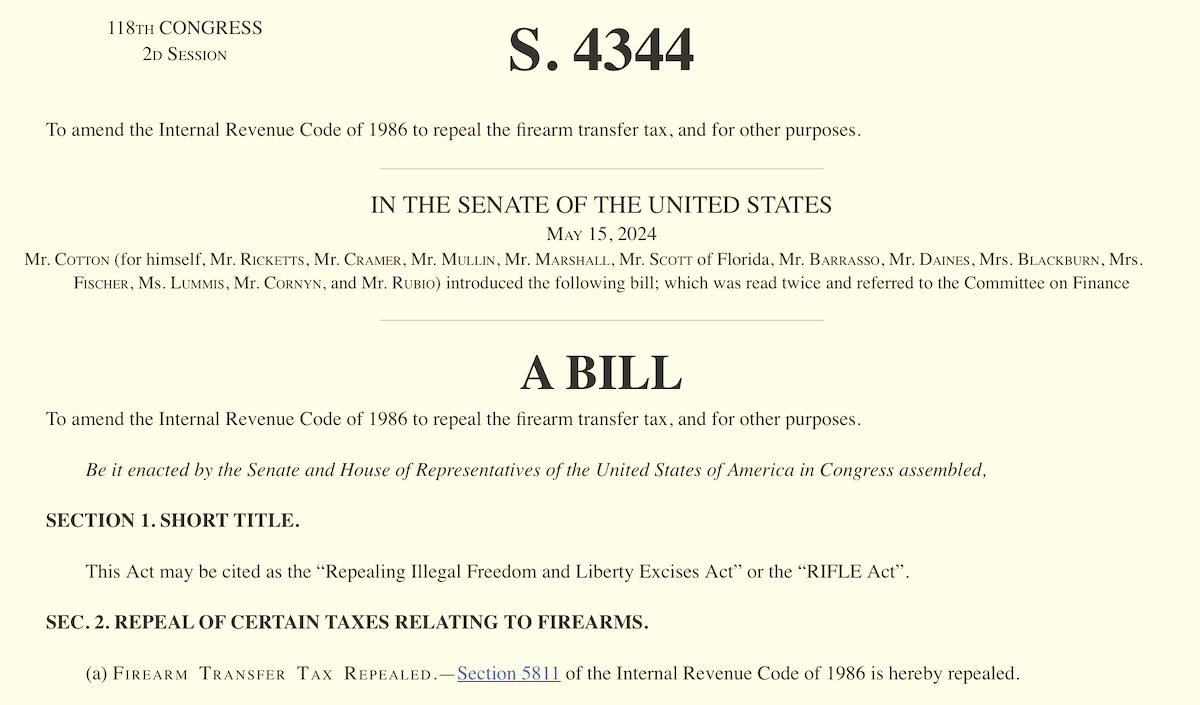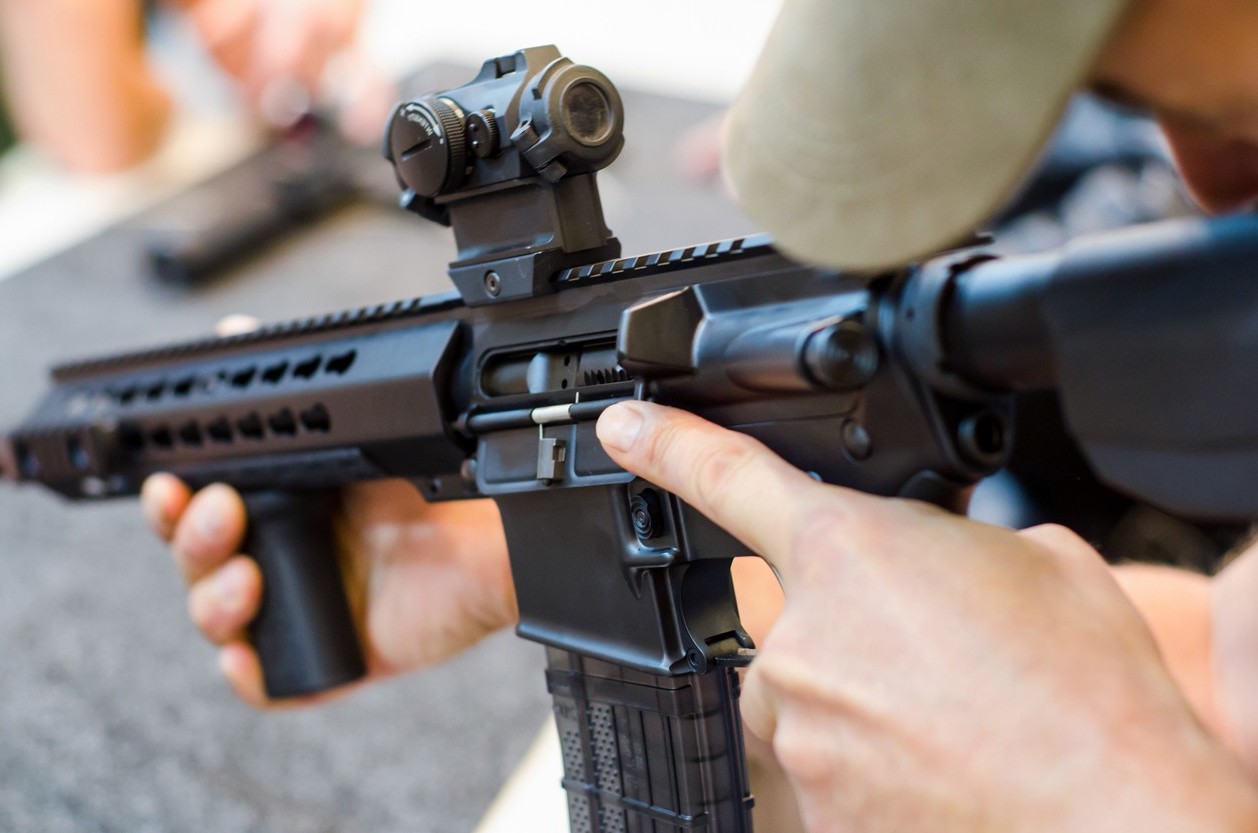Keith Lusher 04.08.25


On April 1, 2025, Consultant Ashley Hinson (R-IA-02) and Senator Tom Cotton (R-AR) reintroduced the Repealing Unlawful Freedom and Liberty Excises (RIFLE) Act in each chambers of Congress. This essential laws, showing as H.R. 2552 within the Home and S.1224 within the Senate, seeks to eradicate the burdensome $200 excise tax presently imposed on firearms regulated below the Nationwide Firearms Act (NFA).
Since 1934, the NFA has pressured gun house owners to pay a $200 tax when buying sure firearms and equipment, together with short-barreled rifles, short-barreled shotguns, suppressors, and computerized firearms. The Bureau of Alcohol, Tobacco, Firearms and Explosives (ATF) has brazenly acknowledged that this tax was initially meant “to curtail, if not prohibit, transactions” of those lawful objects—a transparent infringement on Second Modification rights.
“The Second Modification is a Constitutional proper that isn’t to be infringed. Legislation-abiding gun house owners shouldn’t be pressured to pay an unconstitutional firearm tax,” mentioned Consultant Hinson. “This invoice will take away pointless monetary obstacles on lawful gun house owners from the antiquated 1934 Nationwide Firearms Act and shield the Second Modification rights of Iowans and Individuals.”


Senator Cotton strengthened this principled stance, stating, “Legislation-abiding Individuals who train their Second Modification rights shouldn’t be topic to pointless taxes and restrictions stopping them from doing so. Handed into legislation in 1934, the Nationwide Firearms Act must be amended. Our laws will take away the crimson tape that locations an undue monetary burden on would-be gun house owners.”
The invoice has rightfully garnered important help in Congress. Within the Home, Consultant Hinson launched the laws alongside 27 authentic co-sponsors, whereas Senator Cotton’s Senate model has been co-sponsored by 12 colleagues, together with Senators John Boozman (R-Arkansas), Ted Cruz (R-Texas), and Rick Scott (R-Florida).
The laws maintains present background verify provisions and registration necessities—it solely targets the unjustifiable monetary barrier the tax creates. The $200 tax has remained unchanged since 1934, when it represented a major monetary impediment designed particularly to stop Individuals from exercising their constitutional rights. In in the present day’s {dollars}, that quantity could be equal to roughly $4,741—a considerable and unfair burden on law-abiding residents. The RIFLE Act has earned sturdy endorsements from revered firearms advocacy organizations. John Commerford, Government Director of the Nationwide Rifle Affiliation’s Institute for Legislative Motion (NRA-ILA), said, “The Nationwide Rifle Affiliation applauds Consultant Hinson and Senator Cotton on their management on the Second Modification and their reintroduction of the RIFLE Act. This $200 punitive tax has solely ever served as a monetary barrier for law-abiding Individuals to train their Second Modification rights.”


The Nationwide Capturing Sports activities Basis has additionally backed this commonsense laws. Lawrence G. Keane, the group’s Senior Vice President and Basic Counsel, precisely described the tax as a “‘sin tax’” and added, “Nevertheless, there isn’t any sin in exercising a Constitutionally-protected proper. We recognize the management of Consultant Hinson and Senator Cotton to eradicate this tax that solely serves as a barrier to law-abiding residents protecting and bearing arms.”
Highlighting the rising help for eliminating this unreasonable tax, possession of NFA-regulated objects has elevated by greater than 230% from 2018 to 2023, as extra sportsmen, shooters, and firearm fanatics search to train their Second Modification rights with out unjust monetary penalty.
The laws additionally ensures that pistols with stabilizing braces wouldn’t be topic to the $200 switch tax, addressing one other current concern amongst accountable gun house owners.
The NRA-ILA has dedicated to offering updates as this important laws progresses by means of Congress, providing hope that this outdated restriction on constitutional rights could lastly be eliminated.

